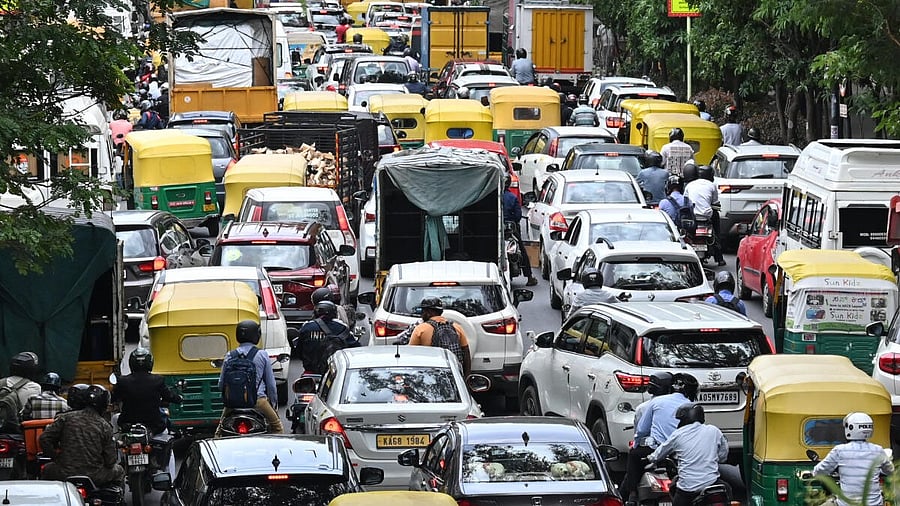
Traffic jam near Residency Road in Bengaluru
Credit: DH File Photo
Bengaluru: Karnataka's Deputy Chief Minister D K Shivakumar ruled out any plans to levy a peak-hour congestion tax in Bengaluru.
"It's false. There's no such proposal before me," Shivakumar, the minister for Bengaluru Urban Development, told reporters.
The idea of levying a congestion tax, which is not new, came up at a meeting Chief Secretary Shalini Rajneesh chaired last week to discuss the city's development. At that meeting, urban expert RK Mishra pushed for a congestion tax on single-occupant cars on the Outer Ring Road (ORR).
"Some industrialists have advised (levying congestion tax) in the interest of the city," Shivakumar pointed out.
Earlier in the day, Leader of Opposition R Ashoka described Chief Minister Siddaramaiah's administration as "Tughlaq government" for even thinking about congestion tax, which he said would not stand in court.
"First, repair the roads and everything will be fine. Without repairing the roads, they (government) want to tax people. Look at the situation we are in," Ashoka said. He also wondered if congestion tax would apply to cars of chief minister and his Cabinet colleagues if they travel alone.
Congestion tax in CBD: Study
Last year, a study commissioned by the government recommended imposing Rs 100-500 on private vehicles entering the city’s central business district (CBD) during peak hours.
The study -- Environmental Problems and Congestion: Evolving Sustainable Solutions for Bengaluru's Development -- was done by experts at the Institute for Social and Economic Change (ISEC).
Specifically, the study said private vehicles entering MG Road, Brigade Road and Dr Ambedkar Veedhi during peak hours in CBD may be charged Rs 100-500 as congestion tax.
"The toll may be collected using satellite or GPS-based Fastag. This strategy is not to be construed as revenue generation or preventing public from entering the particular road, but to avoid unmanageable traffic during the peak hours and disincentivize the private vehicle use in these roads. This can be implemented on experimental basis on one road to test its effectiveness to use it elsewhere in the city," the study recommended.
